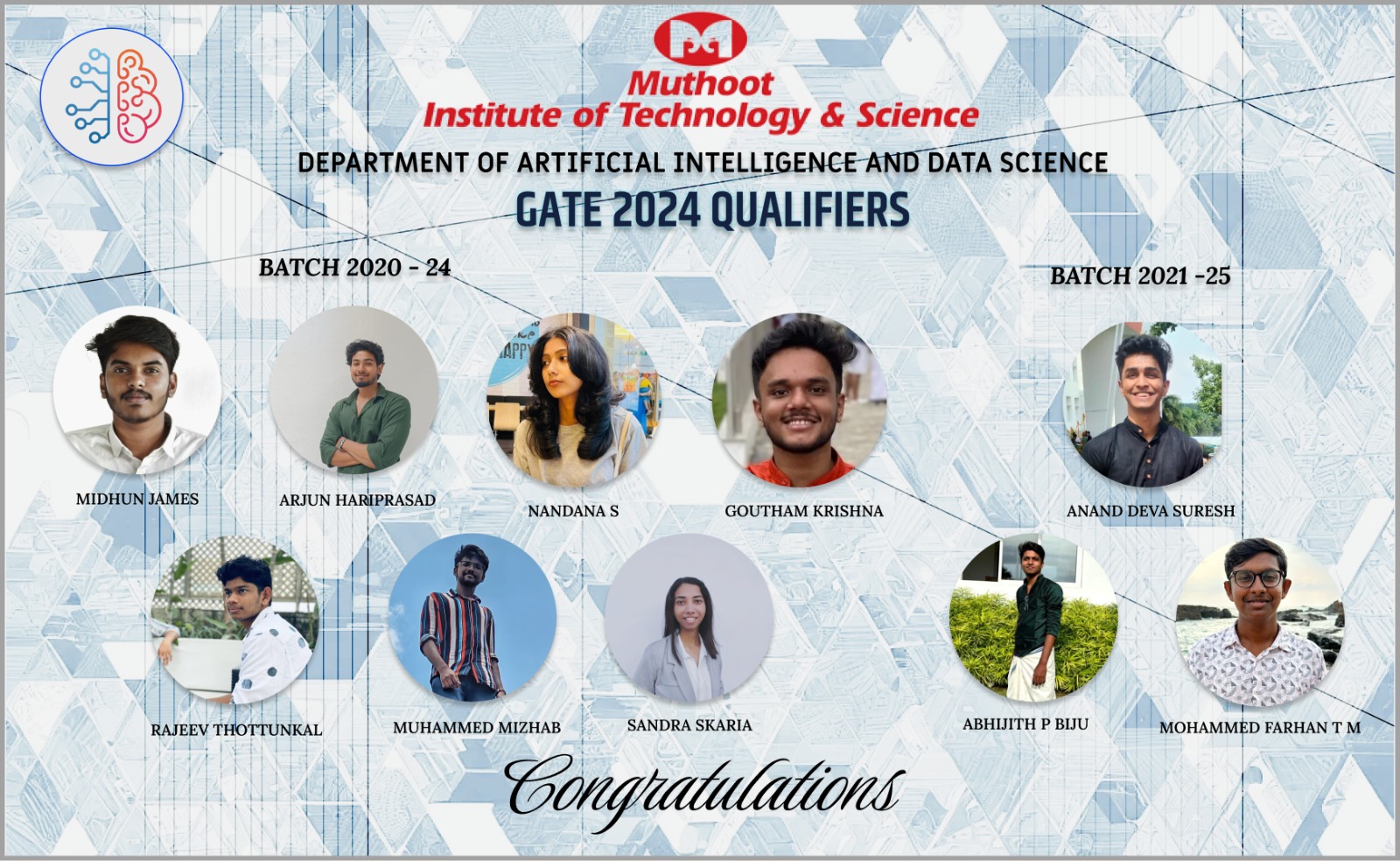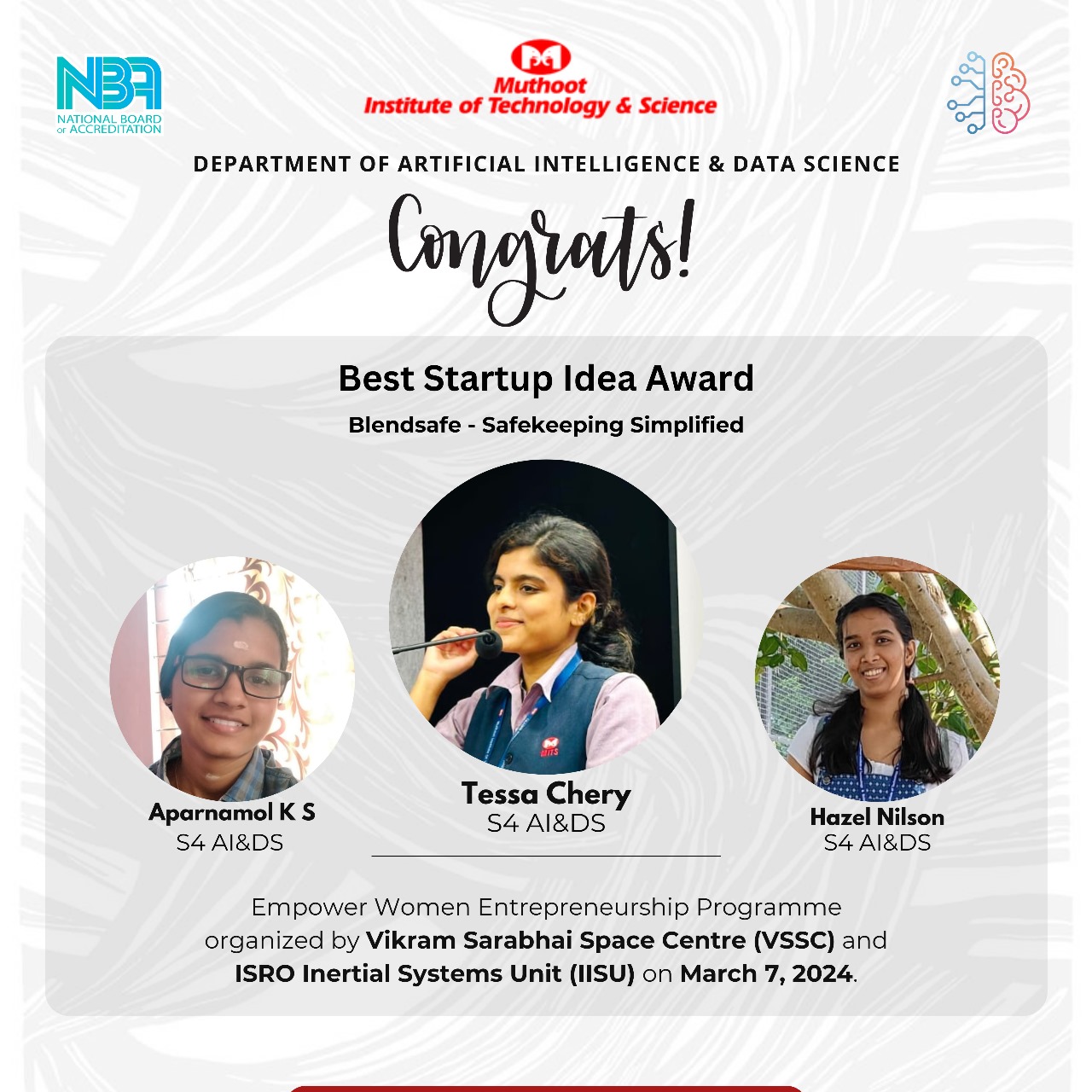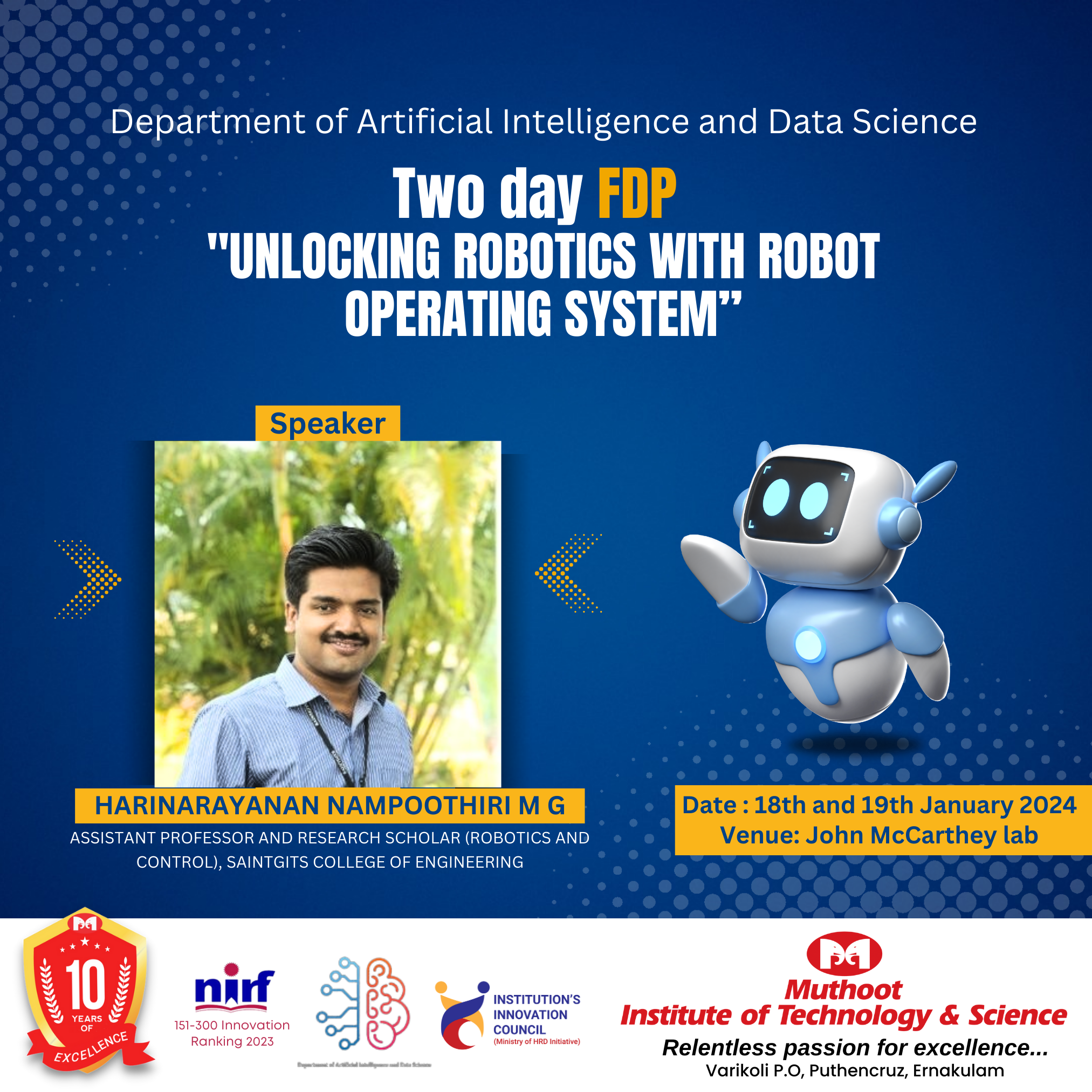GATE qualified 2024!!
To excel globally in teaching, research, and technology development & transfer in the field of Artificial Intelligence and Data science with a spirit of social commitment.

COLLEGE CODE : MUT
Affiliated to APJ Abdul Kalam Technological University
Approved by AICTE
[email protected] | 0484-2883300/0484-2732100/111
Relentless passion for excellence...
(Promoted by The Muthoot Group)
Muthoot Institute of Technology and Science (MITS) Puthencruz was established in May 2013. Department of Artificial Intelligence & Data Science is the youngest department in the MITS family. It was formed by the bifurcation of the parent Computer Science department. A team of dedicated & well qualified faculty members having expertise in diversified areas of AI & DS under the headship of Dr. Sumam Mary Idicula is running the department. The department offers two graduate programs and one post graduate program.
Department currently offers following courses :
1. B.Tech in CSE(Artificial Intelligence) ( 60 Seats )
2.B.Tech in Artificial Intelligence & Data Science ( 60 Seats )
3. M.Tech Artificial Intelligence & Data Science ( 12 Seats )
B.Tech in CSE(Artificial Intelligence) and M.Tech Artificial Intelligence & Data Science were started in 2020 while B.Tech in Artificial Intelligence & Data Science in the year 2021. The courses offered in this department aim at helping students to acquire all the basic and advanced level skills & knowledge that are crucial in the field of Data Science, AI , Machine learning and Deep learning. In addition to academics, the department conducts several extra-curricular and co-curricular activities that aims at the holistic development of the students.
We believe in delivering a state of the art experience to every student undertaking our programmes.
To excel globally in teaching, research, and technology development & transfer in the field of Artificial Intelligence and Data science with a spirit of social commitment.
1# Facilitate learning and innovative research in the frontier areas of AI & DS like Natural language Processing, Robotics and Computer Vision.
2# Drive students for technology development and transfer to solve socially relevant problems.
3# Create socially responsible professionals.
PE01:Design AI models to automate various processes in industrial applications.
PEO2:Interpret and visualize high dimensional data for decision making systems.
PO1. Apply the knowledge of mathematics, science, engineering fundamentals, and an engineering specialization to the solution of complex engineering problems.
PO2. Identify, formulate, review research literature, and analyze complex engineering problems reaching substantiated conclusions using first principles of mathematics, natural sciences, and engineering sciences.
PO3. Design solutions for complex engineering problems and design system components or processes that meet the specified needs with appropriate consideration for the public health and safety, and the cultural, societal, and environmental considerations.
PO4. Use research-based knowledge and research methods including design of experiments, analysis and interpretation of data, and synthesis of the information to provide valid conclusions.
PO5. Create, select, and apply appropriate techniques, resources, and modern engineering and IT tools including prediction and modeling to complex engineering activities with an understanding of the limitations.
PO6. Apply reasoning informed by the contextual knowledge to assess societal, health, safety, legal and cultural issues and the consequent responsibilities relevant to the professional engineering practice.
PO7. Understand the impact of the professional engineering solutions in societal and environmental contexts, and demonstrate the knowledge of, and need for sustainable development.
PO8. Apply ethical principles and commit to professional ethics and responsibilities and norms of the engineering practice.
PO9. Function effectively as an individual, and as a member or leader in diverse teams, and in multidisciplinary settings.
PO10. Communicate effectively on complex engineering activities with the engineering community and with society at large, such as, being able to comprehend and write effective reports and design documentation, make effective presentations, and give and receive clear instructions.
PO11. Demonstrate knowledge and understanding of the engineering and management principles and apply these to one’s own work, as a member and leader in a team, to manage projects and in multidisciplinary environments.
PO12. Recognize the need for, and have the preparation and ability to engage in independent and life-long learning in the broadest context of technological change.
PSO1:Design solutions relating to big data problems.
PSO2:Implement AI Techniques to human language processing, computer vision and decision making.
PSO3:Develop computational models for system automation.


“Best Startup Idea Award ” – awarded by VSSC(Vikram Sarabhai Space Centre)and IISU

Faculty Development Programme by Artificial Intelligence and Data Science Department
